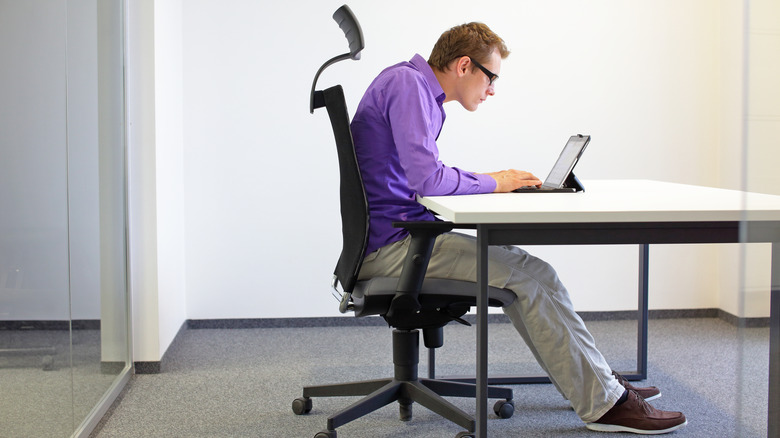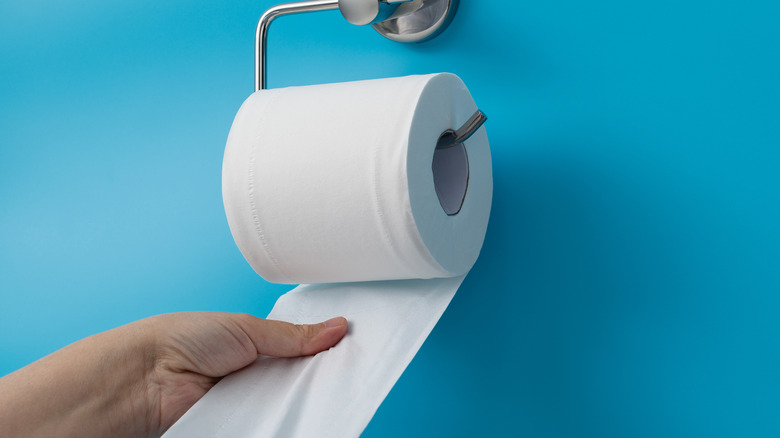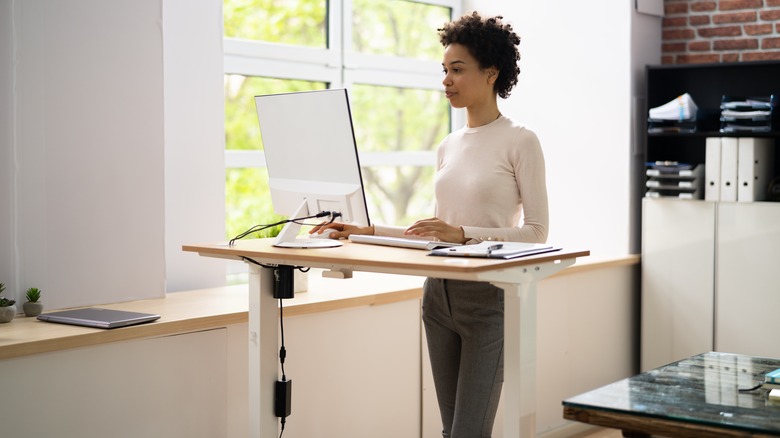Slouching Has An Unexpected Effect On Your Poop
As you read this, take note of your posture. Is the top of your head parallel with the floor, or is it dipping down towards the floor? Notice your shoulders. Are they rounded forward so your entire spine is curved? This might be a sign of bad posture.
When you sit for about 10 hours a day like most people, your tired body can droop after a while, especially when you don't stand up every half hour or so. Your posture affects your health in more ways than you think, causing pain in your neck, shoulders, and lower back. Over time, slouching can cause more wear and tear on the vertebrae of your spine. With your shoulders hunched forward, you might also notice that you don't breathe as well. Your lungs don't get the opportunity to expand because hunching over compresses your abdomen so your diaphragm and intercostal muscles don't have room. This compression could also affect your digestive and urinary system, causing issues such as incontinence, acid reflux, and constipation.
How poor posture affects your poop
When you have poor posture, your muscles and tendons get used to that same position. More than likely, you probably also slouch while on the toilet as you scroll through your cell phone or read a newspaper. Your knees might be lower than your hips, which can close off your anus and abdominal muscles and make it harder to poop. (See if this DIY Squatty Potty can raise your knees).
Slouching throughout your day, especially after eating, makes it harder for your food to digest. Think about your stomach under your breast area as you're hunched over. There isn't much room because you're putting pressure on your front body. This could cause some of the stomach acid to move up and cause acid reflux. Your intestines also don't have room to move, and food could have trouble moving through your digestive system, making you feel bloated or constipated. Your bladder could also be compressed and cause urinary incontinence, especially if your pelvic floor muscles are weak.
Correcting your posture
Your body can get used to slouching, so you'll need to train your body to stand and sit with good posture until it becomes automatic. Every moment you can remember, imagine someone pulling on a string fixed at the back of your skull. This will cause your chest to open and drop your shoulders. Your shoulders should roll back, and imagine your shoulder blades pressing against a wall or the back of a chair. Align your ears with your shoulders and keep your chin pointing forward.
To sit properly, do your best to keep your feet flat on the floor without crossing your legs. Raise or lower your chair so that your upper arms and forearms form a 90-degree angle. Be sure to get up every half hour or hour and walk around to move your muscles and joints. Many smartwatches these days have a move reminder to alert you when you've been sedentary for too long. Regular exercise, particularly body awareness classes such as yoga or tai chi, can keep your body flexible and counteract the effects of slouching. Be sure to include some core and pelvic floor exercises to stabilize your posture.



